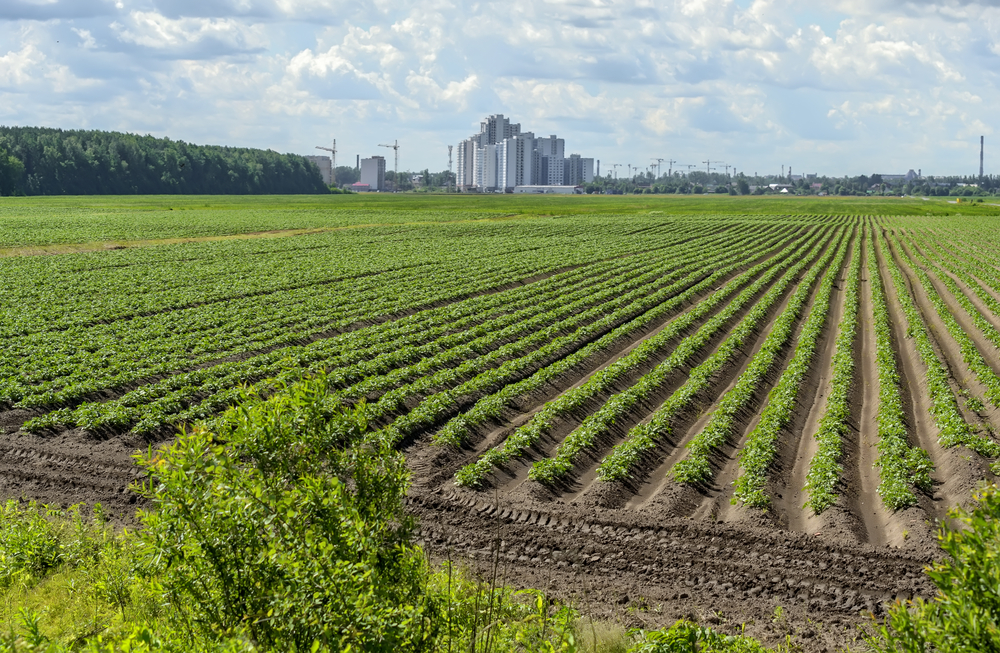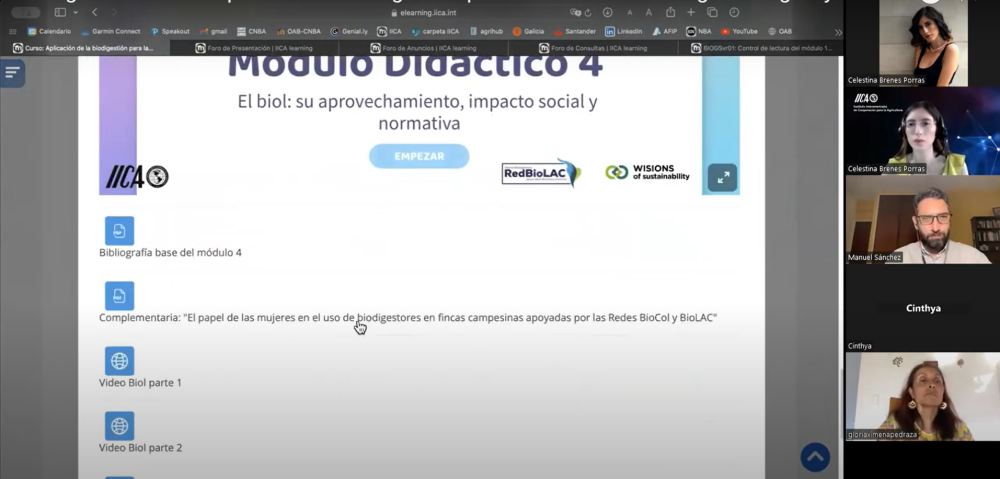IICA, RedBioLAC and WISIONS of Sustainability launch course to promote biodigestion technologies in Ibero-America

San José, May 28, 2024 (IICA). To promote the use of biodigestion technologies, share successful experiences, and promote public policies to advance towards sustainable agrifood systems, the Inter-American Institute for Cooperation on Agriculture (IICA), the Network for Biodigesters in Latin America and the Caribbean (RedBioLAC) and the WISIONS of Sustainability Program, which operates under the aegis of Germany’s Wuppertal Institute, have launched the course “Application of biodigestion for the agroecological and bioeconomic transformation of agrifood systems in Ibero-America.”
The virtual course is designed to serve as an introduction for government workers to the topic of “anaerobic digestion,” a process involving the treatment of organic waste to generate energy. Biodegradable material is decomposed by microorganisms in the absence of oxygen to produce biogas and fertilizer.
“For the Wuppertal Institute, this course is a small contribution to the dissemination of knowledge about biodigestion that is dispersed throughout Latin America, as these practices and technologies have great potential as a tool for transforming agricultural systems, which are diverse,” said Willington Ortiz, project coordinator for WISIONS of Sustainability, which is supporting the initiative financially.
The training is targeted at government technical staff and decision makers involved in the design and implementation of policies in Latin American and Caribbean countries. Some 96 professionals have signed up so far. They are based in Mexico, Guatemala, Colombia, Peru, El Salvador, Ecuador, Costa Rica and Argentina, and work for government entities such as ministries and departments of agriculture and national research and energy institutes.
“Since 2017, RedBioLAC has been supporting the dissemination and holding of webinars on this topic and today, with this course, we embark on a new stage aimed at training decision makers in these technologies. Biodigestion produces biol, a byproduct that is very useful as a biofertilizer,” said Gloria Ximena Pedraza, coordinator of interinstitutional relations at RedBioLAC.

Celestina Brenes Porras, an IICA specialist in bioeconomy and international cooperation, explained that: “The bioeconomy includes biofuels, which can be in different states. Biogas is especially important due to its characteristics, and can be useful in both urban and rural areas. In the agricultural field, the small and medium-scale production of biogas improves the wellbeing of rural inhabitants, since it makes it possible to produce clean and accessible energy for areas not connected to gas or electricity distribution systems.
The training began early in May and will conclude in the third week of June 2024 with an in-person workshop on sites in Mexico, Guatemala, Colombia and Costa Rica.
More information:
Institutional Communication Division.
comunicacion.institucional@iica.int